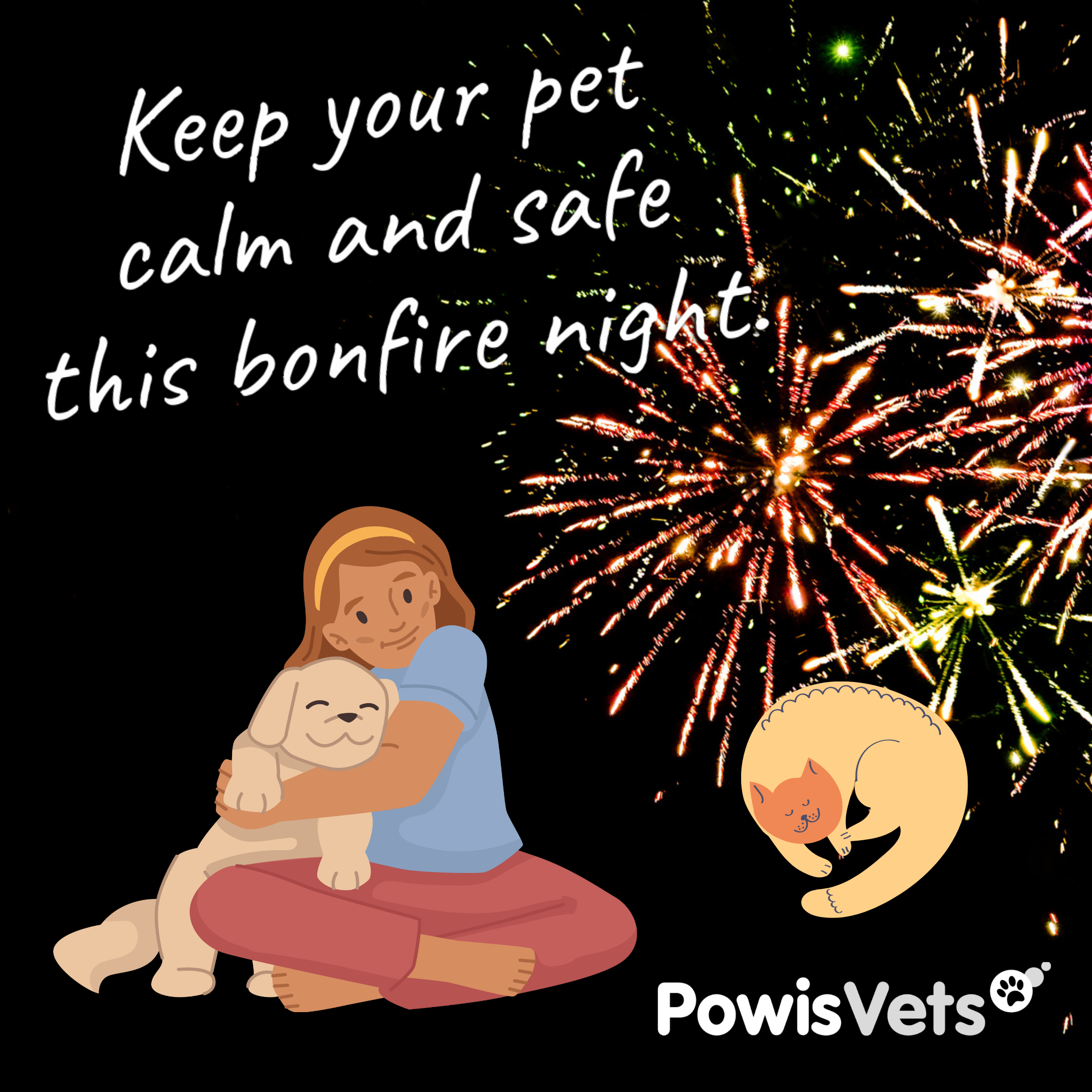Helping to take the fear out of fireworks

For many people, fireworks are a time of joy and celebration. For pets, however, the loud bangs, bright flashes, and unusual smells can be frightening and stressful. Firework anxiety is common in dogs, cats, and small animals, but with some preparation and support, we can make this time of year easier for our furry friends.
Why Fireworks Frighten Pets
- Noise sensitivity – Animals hear far more acutely than humans, so sudden loud noises can feel overwhelming.
- Unpredictability – Unlike storms, fireworks are irregular and unexpected, which can heighten fear.
- Perceived threat – Pets often interpret loud bangs and flashes as danger, triggering a natural stress response.
Preparing in Advance
- Create a safe haven: Provide a quiet, secure space with familiar bedding and toys. Never shut your pet in this area but introduce it in a positive way, putting tasty treats inside to lure them in and once inside provide them with a long lasting chew to encourage them to settle down in there and make positive associations with it.
- Reduce noise and light: Close curtains, shut windows (including vents) and play calming background sounds such as TV, soft music, or white noise. Avoid news channels that might be showing footage of local firework displays. Ensure, whatever noise you use to mask the fireworks, that it is something your pet can tolerate, and doesn’t exacerbate the fear.
- Use calming aids: Pheromone diffusers and sprays (such as Adaptil for dogs or Feliway for cats) can help create a reassuring environment. If your pet has been prescribed medication, or if your vet has advised use of a particular supplement, ensure this has been given plenty of time ahead of any planned fireworks.
- Plan ahead with exercise: Walk dogs well before nightfall so they are indoors before fireworks begin. Don’t let cats outside once dusk falls.
Supporting Pets During Fireworks
- Stay calm: Pets often mirror the emotions of those around them. Remaining relaxed can help them feel secure.
- Offer comfort: Allow pets to hide or seek reassurance if they need it—never punish them for being afraid. Some pets may prefer to take themselves off and hide – this is fine too. Provide hiding places for them to do this, making use of existing areas where you know your pet chooses to hide if unsure but making them more comfy with the use of blankets.
- Provide distractions: Puzzle feeders, chews, or interactive toys can help keep their focus away from outside noise.
- Protect small pets: Cover outdoor hutches and cages with thick blankets (ensuring ventilation) to reduce noise and block light flashes.
- For cats, remember to make use of 3D space – some cats prefer bolt holes low down, but many feel safer up high. A blanket on top of a wardrobe can make a big difference.
When Extra Help Is Needed
Some animals need more than management at home. Veterinary advice may be required if:
• A pet shows severe anxiety, panic, or destructive behaviour.
• Calming products and preparation aren’t enough.
Vets may suggest short-term calming medication, natural supplements, or prescription anxiolytics. It can help to stop your pet’s fear getting worse by starting these products as soon as you notice your pet has a problem. They may also advise referral to a Companion Animal Behaviourist or Veterinary Behaviourist. Behavioural training and desensitisation programmes can be very successful in reducing firework fears in the long term but this needs to be started many months in advance, and is best done under the guidance of a professional. If your pet struggles with fireworks this year please visit your vet and let them know as soon as possible after firework season, so that behavioural support can be sought in plenty of time for next year.







